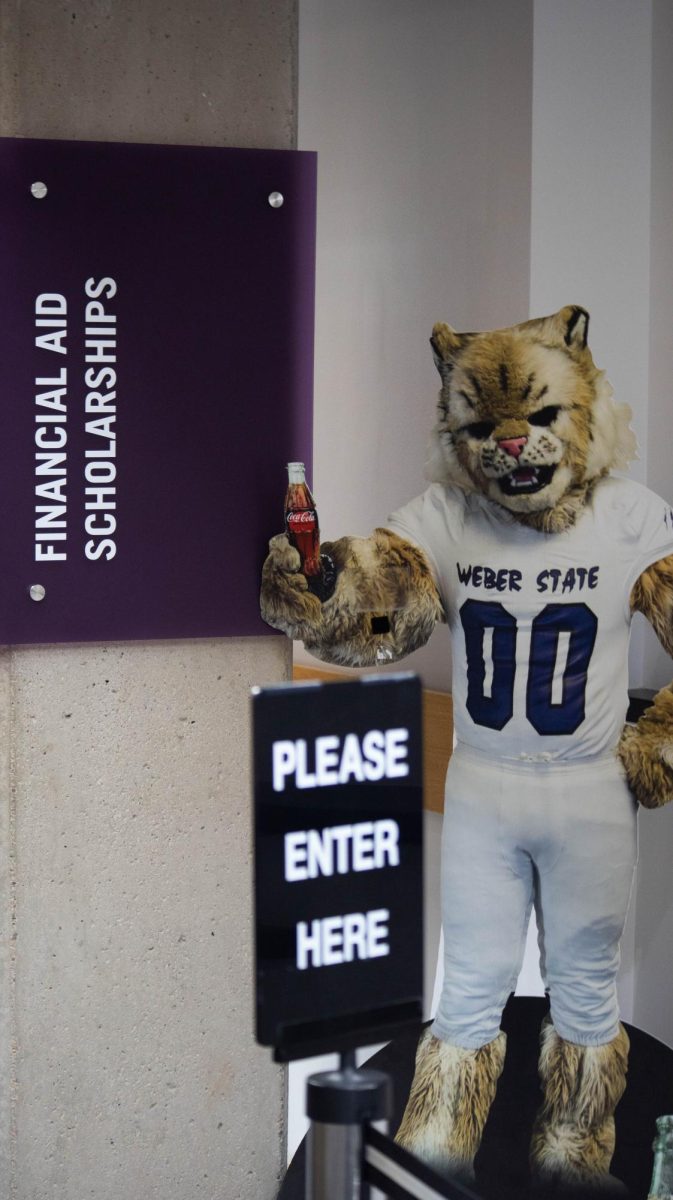1 in 6 Americans go to bed hungry, according to USDA Economic Research Service. At Weber State University, it’s no different.
“A lot of students are hurting and embarrassed to ask for help,” Honors/BIS Senator Sultan Ayubi said.
Weber Cares Food Pantry opened its door in 2011. Since its inception, it has provided food-insecure students, faculty and staff with nonperishable food items. Among the items available, however, there is little offered in the way of culturally-diverse foods.
It was the absence of culturally-diverse items that encouraged Ayubi to bring a resolution to the Weber State University Student Association Senate.
Coordinator of Leadership Programs Sheldon Cheshire said resolutions are conversation starters. Ayubi reached out to Cheshire to determine what steps should be taken to improve the food pantry’s resources. Initially, they planned to bring familiar foods to all of Weber’s students.
However, Ayubi saw the resolution as an opportunity to address other needed improvements as well.

The resolution was introduced to the Senate Sept. 17. It later passed with 17 yeas, 1 nay and 1 abstention. Because of the resolution, those using the food pantry can now look forward to the possibility of refrigerated/frozen items in addition to an ethnic variety of foods.
The resolution also suggests a relocation. Food Pantry Chair Andrea Hernandez mentioned the designated Meditation/Lactation room in Shepherd Union as a space the food pantry could move to.
Shepherd Union 214, where the Lactation room in is currently located, is in the back corner of the food court dining area, which would more centrally locate the food pantry.
On the other hand, Hernandez is wary of moving the food pantry from its currently-secluded location, in SU 402.
“Students won’t have that much privacy,” Hernandez said.
For Ayubi, discretion is of little importance. His proposal to move the pantry to a centralized location is to make student’s aware of this resource. Sophomore volunteer Giovanni Frias stated most of those he helps at the pantry are residential students because they are aware of it.
Currently, Hernandez and fellow volunteers promote the pantry’s existence via social media and counseling services. Cheshire fears moving the pantry out in the open will attract others to abuse its purpose.
“We don’t want it to become a convenience store,” Cheshire said.
Any Weber State student is eligible to receive help; there are no financial requirements to use the food pantry’s resources. Signing in on the pantry’s iPad, however, is required. According to data received via sign ins, 45 students used the pantry from Sept. 17 through Oct. 5 (excluding weekends).
Weber Cares Food Pantry distributed 4,297 pounds of food during the 2017-2018 academic year. On average, each user received 12 pounds of food.
A large part of the donations come from fellow students. However, Hernandez finds other outlets to supplement the pantry’s resources. Recently, Catholic Community Services Food Pantry donated items in response to Hernandez’s outreach.
In her off time, she also makes connections with Clubs and Organizations on campus to aid her in donations through events. C&O Casino Night, on Oct. 9, was one such event, where entry required a canned food donation for the food pantry.
Ayubi specifically named Hernandez, Cheshire and Program Coordinator of the Center of Community Engaged Learning Teresa Martinez as a few supporters of the food pantry resolution.
“They go the extra mile,” he said.
For Ayubi, they are the real heroes, helping starving students.



















